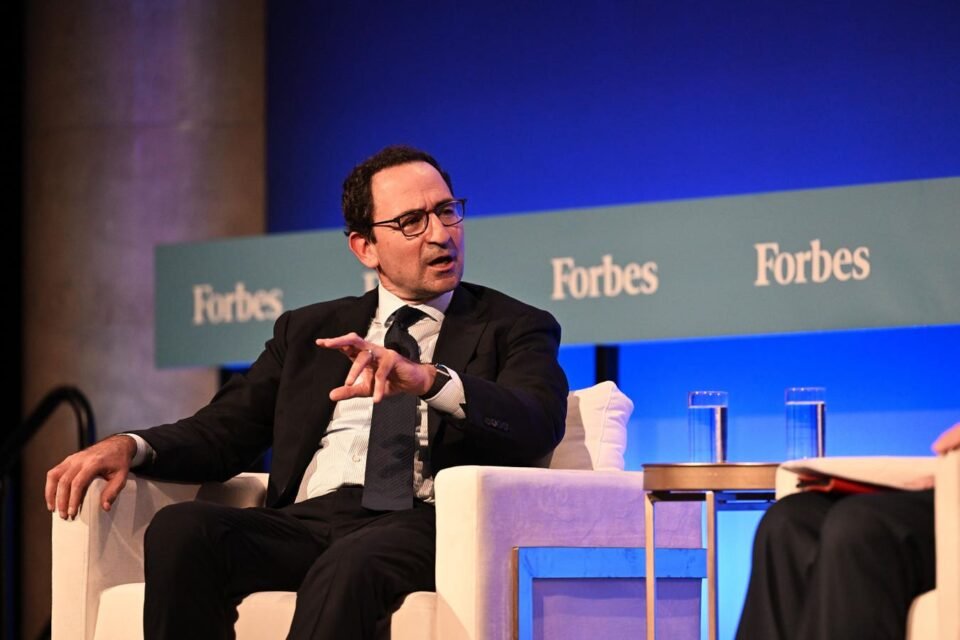Jonathan Gray speaks on stage with Steve Forbes at Iconoclast
Jamel Toppin/Forbes
Blackstone, the world’s largest private-equity fund, already manages about $1.1 trillion of assets, but COO Jonathan Gray has his sights set much higher. He is seeking to get a piece of the $80 trillion that individual investors around the world have to invest, and dangling the outsized returns that PE firms often enjoy as bait.
“When it comes to individual investors, they’re saying ‘hey, why don’t I get what the institutions get?” said Gray in an interview with Steve Forbes at the third annual Iconoclast Summit on Thursday. His tool for cracking this market is perpetual funds, a modest misnomer for investments that are intended to be held for longer periods than with the smash-and-grab style of corporate reorganization that Gray says has fallen out of favor in the PE world. These perpetual funds are Blackstone’s fastest-growing product, accounting for approximately 40% of the firm’s total assets. Like professional’s investments with PE firms, withdrawals are limited until the fund exits all its holdings.
In fact, Blackstone’s own strategies feature extended durations, with returns that can take a decade or more to materialize. Rather than buying up weak companies and essentially stripping them for parts, Gray is committing capital to some of Blackstones new investments, it’s trying to help them grow.
“Rather than saying I’m going to buy the contract, sell the business after five years,” Gray explained, “I’m going to invest and hold and earn the benefit of compounding.”
Much of the interest in private-equity targets is outside the U.S., where the market is relatively well-funded, Gray says. Blackstone is targeting Europe, Japan and emerging markets, to stay ahead of the curve.
Gray highlighted India and Japan as particularly promising markets. India, Gray said, is interesting not only because of its rapid economic growth—projected by the International Monetary Fund to be 6.8% this year—but also in light of improvements the government has made to capital markets infrastructure and foreign-ownership rules. Japan, meanwhile, is beginning to allow foreign investors to purchase its companies as it seeks to emerge from a decades-long deflationary environment. “There’s an openness to private capital,” Gray said.
Gray’s strategy shifts were foreshadowed by an investment in Hilton — a surprisingly successful bet that generated Blackstone $14 billion in profit when it took the company public in 2013. His experience with Hilton, Gray said, taught him the opportunities in contrarian bets.
The Hilton investment started off looking like a losing battle: shortly after buying the hotel chain for $26 billion, the 2008 financial crisis hit, and Blackstone at one point wrote down the investment 71%. But Gray, confident in his strategy, invested $800 million into the company, cutting interest costs by purchasing its debt at steep discounts and introducing the hotels to emerging markets while simultaneously growing its footprint in the US.
“It should have been a career shortening moment,” Gray joked. The experience taught him to “focus on the neighborhood where you invest capital,” he said, or to structure his investments “thematically.”
Gray was clear that Blackstone is not discarding its traditional strategies. But international investors and nontraditional funds – those trends, says Gray, have “opened up a whole new world.”

